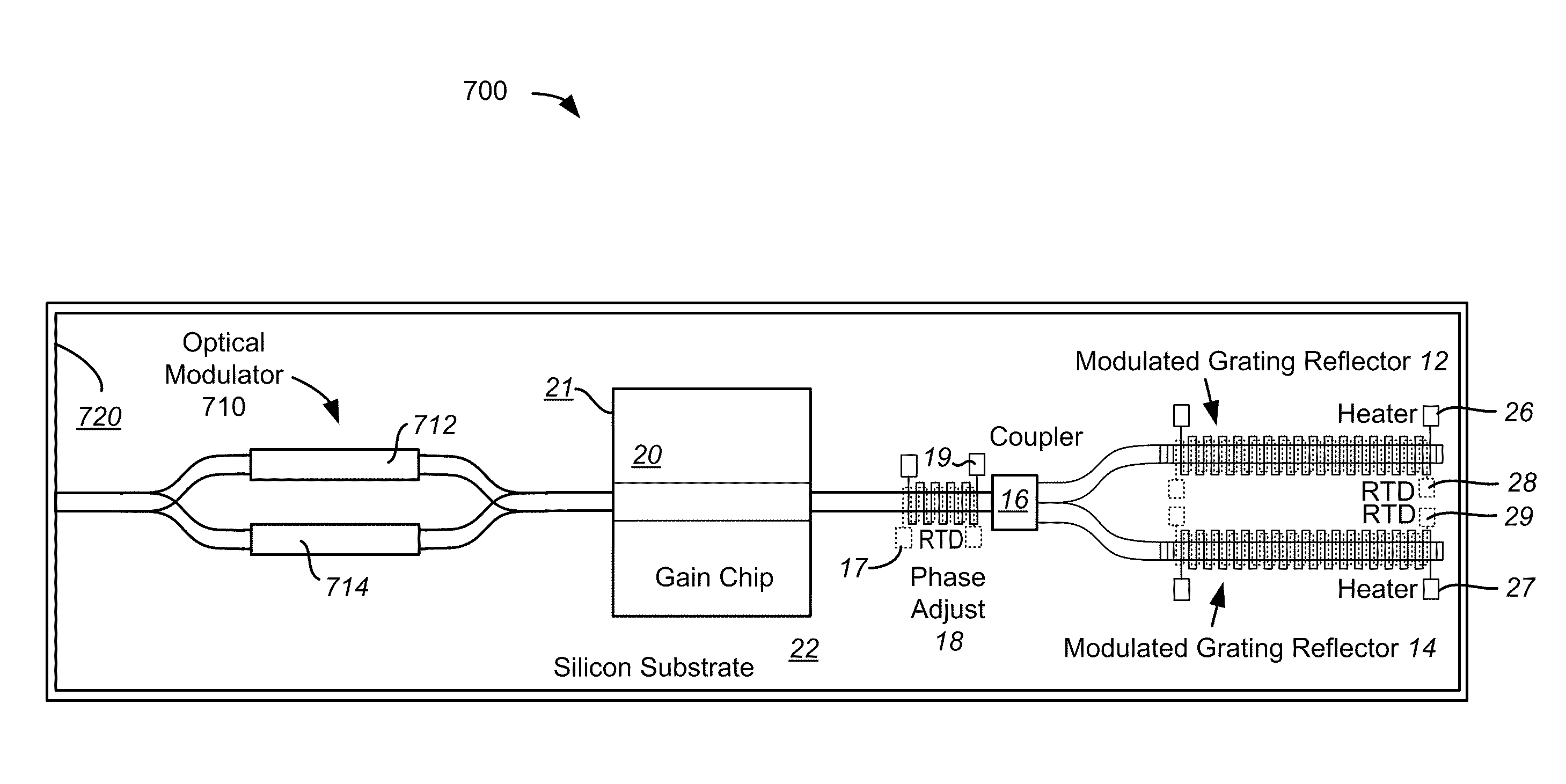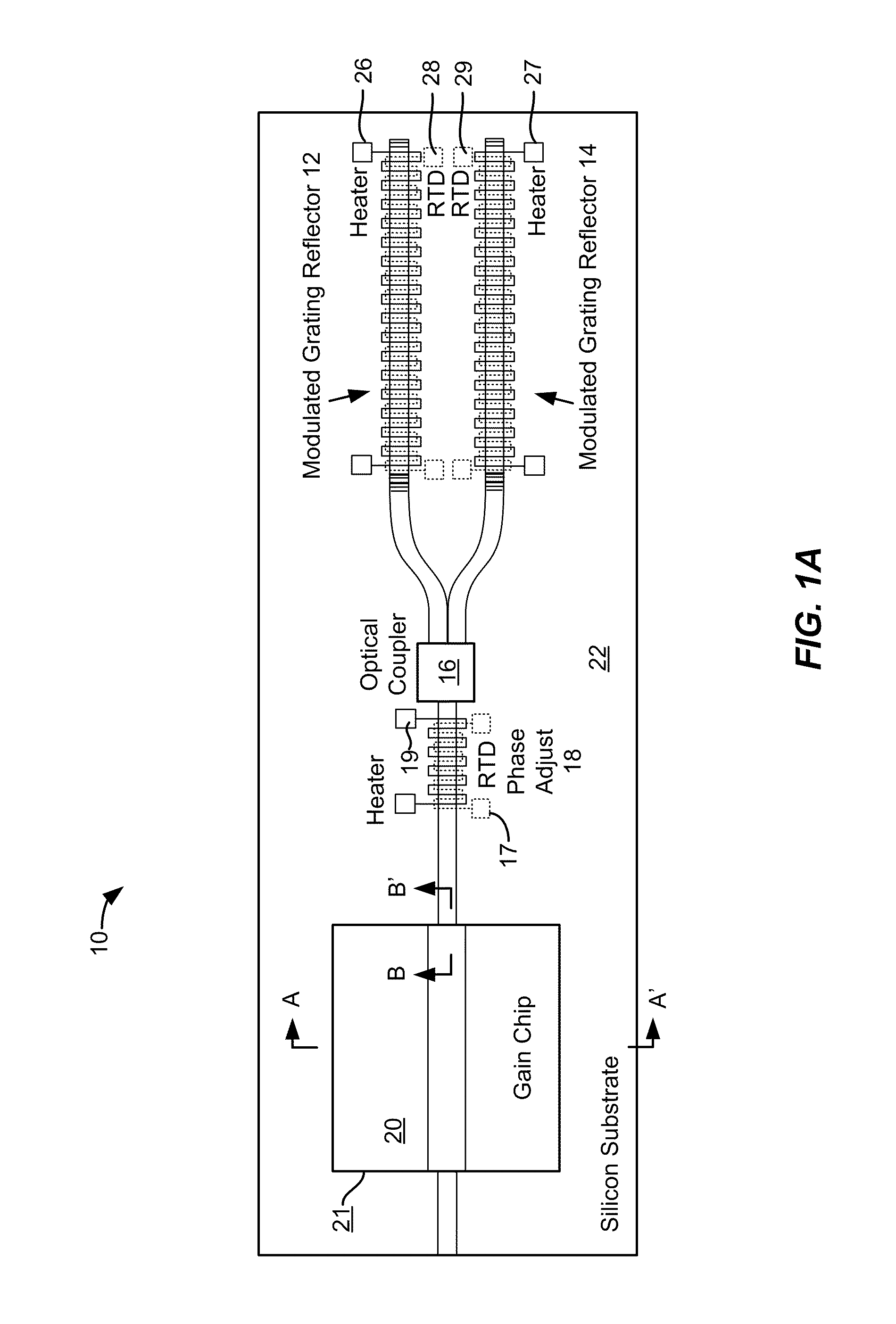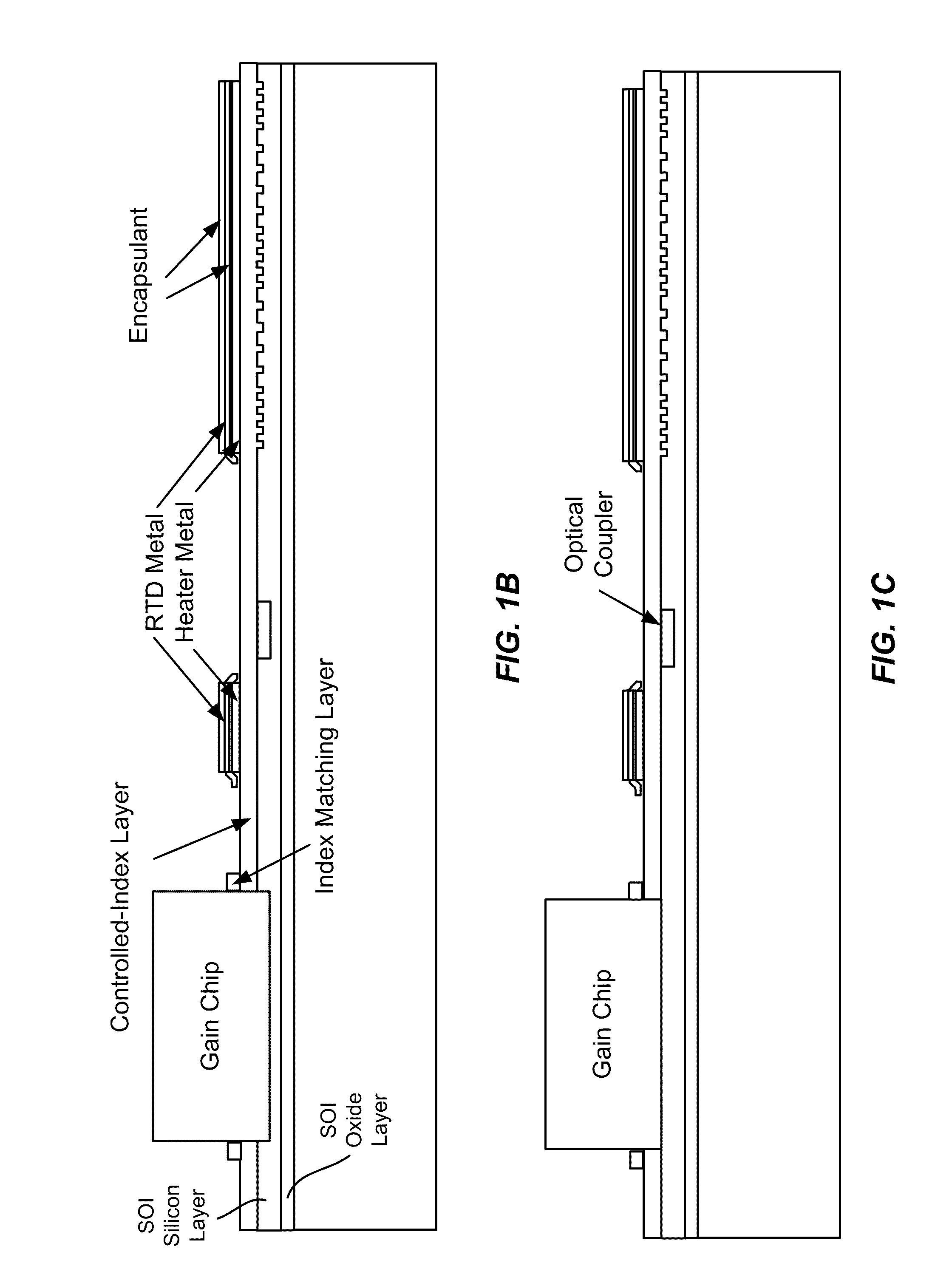Method and system for hybrid integration of an opto-electronic integrated circuit
a technology of optoelectronic integrated circuit and integrated circuit, which is applied in the direction of instruments, semiconductor lasers, optical elements, etc., can solve the problems of limiting the integration of advanced electrical functions on these materials to niche, high-performance applications, and the inability to use silicon for light emission or optical amplification, so as to reduce the size and power consumption of optical communication systems, improve the laser linewidth, and minimize the effect of refractive index fluctuations
- Summary
- Abstract
- Description
- Claims
- Application Information
AI Technical Summary
Benefits of technology
Problems solved by technology
Method used
Image
Examples
Embodiment Construction
[0036]Hybrid integration on silicon is preferable for the commercial deployment of optoelectronic integrated circuits. Silicon is a preferable material for electronic integration. Silicon technology has advanced such that extremely complex electronic functions can be realized very inexpensively. Silicon is also a good material for constructing low loss optical waveguides. However, monolithic integration of light generating or detecting functions has been prevented in silicon because it is an indirect bandgap material. Conversely, compound semiconductor materials, including III-V materials such as indium phosphide are well suited for light generation and detection because of their physical properties such as being direct bandgap materials. These materials are complex material systems with small substrates and relatively (compared to silicon) low yields. As such, constructing devices with a high level of functionality is currently cost prohibitive.
[0037]Embodiments of the present inve...
PUM
| Property | Measurement | Unit |
|---|---|---|
| reflectance | aaaaa | aaaaa |
| wavelengths | aaaaa | aaaaa |
| temperatures | aaaaa | aaaaa |
Abstract
Description
Claims
Application Information
 Login to View More
Login to View More - R&D
- Intellectual Property
- Life Sciences
- Materials
- Tech Scout
- Unparalleled Data Quality
- Higher Quality Content
- 60% Fewer Hallucinations
Browse by: Latest US Patents, China's latest patents, Technical Efficacy Thesaurus, Application Domain, Technology Topic, Popular Technical Reports.
© 2025 PatSnap. All rights reserved.Legal|Privacy policy|Modern Slavery Act Transparency Statement|Sitemap|About US| Contact US: help@patsnap.com



